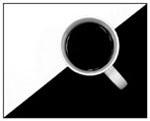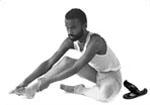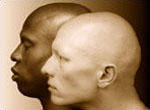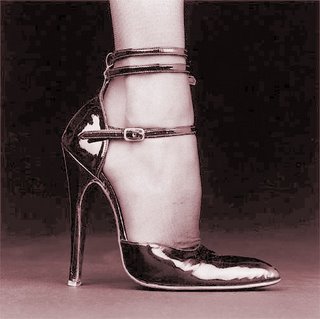
recently read a post to which I started to make a comment. The more I thought about what I wanted to say, the more I had to say. I realized that the comment would've been lengthier than the post itself ...and somewhat off the point. I was making it about me. The post had nothing to do with me, but I was filtering what I read through my own scenario(s).

didn't make the comment. I simply backed off, telling myself, "This is not about you." Instead, I wrote this post which is about me.
From as far back as my early twenties, I came to the realization that I was an egotist. Ooooh, bad thing. Well, not really. It is what it is, and I who I am. I'd made the decision to live my life on my own term and the rest be damned. Well, over the years, and after being around the block several times, I've mellowed considerably. I'm still an egotist, but I know myself much better, and, although it's an ongoing process, I have managed to be true to myself while keeping my ego in check.
When you're called upon for your personal opinion, then, it has to be "about you" ...what you think, how you would react under those circumstances, what, in your opinion, is the best course of action. But sometimes you're required only to perceive, listen, see, hear.
My continuing exercise is to take myself out of the equation when it's [really] not about me. Sure, I'll later apply my own thoughts. feelings, and emotions to the circumstances, but to understand those circumstances more clearly, I try to perceived them without bias. Or if the bias can't be overcome, acknowledge it and compensate for it.
It is said that when you view a painting, your appreciation is based on "what you bring to the experience". This may be true, but if you get mired in "your own myopic perception", you fail to see what the artist was trying to say. Maybe this is not the perfect analogy, but it represents the discipline I exercise when approaching many things involving other people, (the things they say, do, write, paint, sing, photograph, etc.), other situations and circumstances.

've been so successful in applying this principle that in one situation I can recall, it "was" about me, and it wasn't until I'd reflected after-the-fact that I realized I'd just been insulted, albeit ever so subtly. Of course, a part of me fumed over what I should've said, but then I realized that my lack of reaction was, in fact, the best response ...something I couldn't have done had I not been listening objectively at the time.
Don't get me wrong. I live in my head, most of the time. But I do make the conscious effort to get outside of it when appropriate to the situation. I get to see so many things with new eyes. There's still plenty of time [later] to make it "about me".
Quote of the Week: "I know you believe you understand what you think I said. What you don't realize is that what you heard is not what I meant."
















